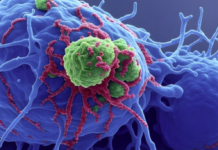New Delhi– Women with Down syndrome show more advanced signs of Alzheimer’s disease than men, even though both genders are typically diagnosed at the same age, according to new research from the University of California, Irvine.
The study found that women with Down syndrome may carry a greater burden of beta amyloid and phosphorylated tau — two hallmark Alzheimer’s proteins — compared to men. This disparity was especially pronounced in the occipital lobe in women with sporadic Alzheimer’s disease, the more common late-onset form that develops without a clear genetic cause.
Researchers say the findings highlight the need for sex-specific strategies in Alzheimer’s research and treatment, particularly when designing clinical trials.
“Understanding selective vulnerabilities within the brain and how these differ in women versus men will help us better navigate treatment outcomes,” said lead author Elizabeth Andrews, a doctoral candidate at UC Irvine. “We’re learning the importance of modifiable risk factors, which include accounting for sex-specific risk.”
Alzheimer’s disease is the leading cause of death for individuals with Down syndrome, who are genetically predisposed to develop the condition earlier in life. While past research has suggested that women with Down syndrome may live longer with dementia than men, few studies have closely examined whether the underlying brain pathology differs by sex.
For this study, scientists analyzed postmortem brain samples, measuring beta amyloid and tau levels. The results, published in Alzheimer’s & Dementia, could reshape how clinicians approach treatment for this population and beyond.
“If women with Down syndrome are further along in disease progression at the time of diagnosis, it could change how we time interventions and interpret outcomes in clinical trials,” said Elizabeth Head, professor of pathology at UC Irvine. “This research could help tailor therapies more effectively, not just for people with Down syndrome, but for the broader Alzheimer’s population as well.” (Source: IANS)














